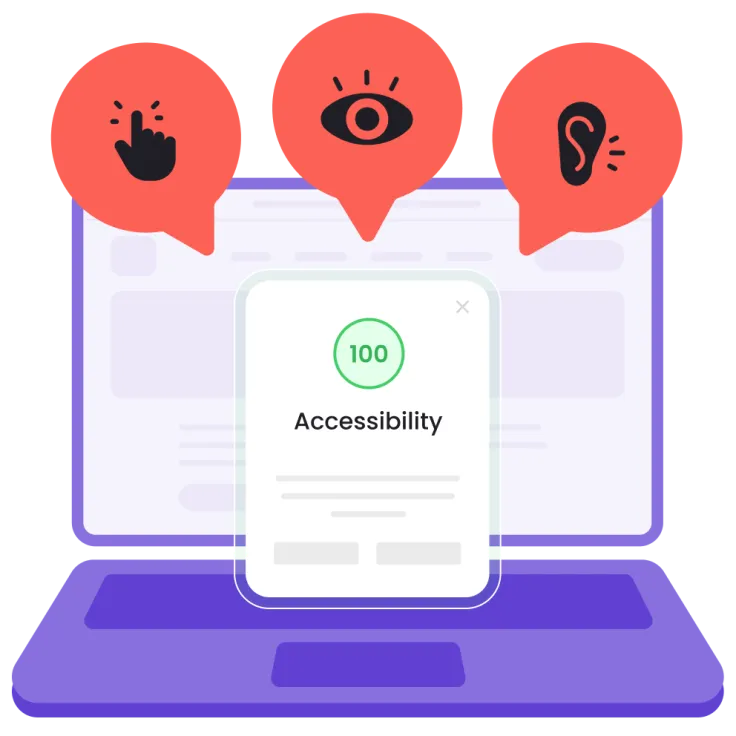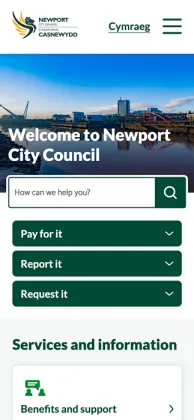LocalGov Drupal
Cost effective Drupal development tailored for Local Authorities
What is LocalGov Drupal?
LocalGov Drupal is a collaborative Drupal distribution designed to promote cost-effective and efficient platform development.
LocalGov Drupal provides an out-of-the-box solution that is designed to meet the core needs of Council websites, with extensions being continuously contributed back to the solution for all councils to benefit from.
Benefits of LocalGov Drupal
Zoocha have been involved with LocalGov Drupal since the project was in the early stages of Discovery and are now supporting supplier. Since then, our team have made contributions, attended workshops and supported the generation of the distribution roadmap.
Accessible
With WCAG2.2 guidelines, it is more important than ever to ensure your council platform conforms to accessibility standards. LocalGov Drupal ensures compliance out-of-the-box, supported by the IAAP certified expertise in our team, you can be confident in meeting WCAG2.2 standards.
Continuous Evolution
There are already over 40 councils involved in LocalGov Drupal and this number is growing every day. By getting involved in the community, your council platform will be able to benefit from the new features, enhancements and updates that are being continuously contributed back to the distribution.
Secure
Drupal is already recognised for its strong commitment to security, and this is only further demonstrated in LocalGov Drupal.
Backed by User Research
All LocalGov features are backed by user research with real council website users. Combined with our commitment to a user-centred approach to platform design and development, LocalGov Drupal allows you to easily meet the needs of a vast range of council platform users.
Zoocha were as excited as we were about the opportunities LocalGov Drupal offered and fully entered into the democratic spirit of the project. They worked in a truly agile way and delivered beyond our specifications. Westminster City Council
Learn more about LocalGov
LocalGov Drupal began as a grassroots collaboration between UK council web teams who wanted to share code, research and patterns rather than rebuild the same things in isolation. Seed funding from the Local Digital Fund (then MHCLG) helped formalise that work into a reusable Drupal distribution, built in the public domain.
Early adopters, such as Croydon, demonstrated the model's effectiveness in 2020-21 by migrating their main sites to the shared platform and contributing features in return. Today, it’s a thriving, open community of councils and suppliers, truly “for councils, by councils”, pooling effort to deliver accessible, secure, citizen-centred services faster and at lower cost.
LocalGov Drupal ships with the essentials councils need, ready to use. You’ll get structured service landing and detail pages, guide journeys, and gov.uk style step-by-step flows to walk residents through tasks clearly.
It also includes news, events, and robust directory functionality with faceted filters, which are ideal for listings such as schools, parks, recycling centres, libraries, and other facilities. Additionally, it features an A–Z index to help users quickly find what they need.
Publications are supported as accessible HTML (instead of hard-to-maintain PDFs), improving reading experience and compliance out of the box.
Editors benefit from sensible defaults, clear patterns, and flexible page layouts, so content remains consistent without requiring extensive training.
Need to scale beyond a single site? The optional Microsites functionality enables organisations to spin up branded sites from a single codebase, with centralised governance.
LocalGov Drupal’s Microsites capability enables councils to manage multiple sites from a single, centrally governed platform.
Each microsite can have its own domain, branding, information architecture and delegated team, while sharing common components and design patterns.
Updates, security patches, and new features are applied once and then rolled out to every site, thereby reducing maintenance overhead and risk.
Editors receive role-based permissions and tailored workflows per site; communications teams can quickly spin up new sites for campaigns, services, or partnerships.
Shared accessibility, performance, and privacy standards maintain consistency across the estate, while tenancy controls preserve autonomy where needed. Perfect for scaling safely without multiplying costs.
LocalGov Drupal plays nicely with the tools councils already use. Single sign-on is straightforward via OpenID Connect, working with common providers (e.g. Microsoft Entra/Azure AD, Okta), using Drupal’s OIDC module and the Azure AD client.
For analytics and consent, councils can pair the LocalGov EU Cookie Compliance companion (which blocks popular third-party scripts, such as GA and Hotjar, until consent is given) with Google Tag Manager (or privacy-first Matomo), keeping tracking compliant and low-friction to set up.
Forms come with helpful extras: LocalGov Forms extends Webform and adds UK-ready address lookup via OS Places; payments can be added with GOV.UK Pay or Stripe Webform modules.
Search is enabled out of the box (using the Search API module), with an optional Solr upgrade available for larger sites.
Content pages can embed maps, with LocalGov Geo pre-configured for OpenStreetMap and switchable to other geocoders as is required.
LocalGov Drupal runs wherever Drupal runs, so councils can pick low-cost, familiar cloud options and keep operations simple. Councils already host LocalGov services successfully across AWS, Azure, and Google Cloud, with others using PaaS services such as Aquia and Pantheon, demonstrating broad compatibility with cloud hosting providers.
Performance is strong out of the box and easy to scale: Drupal’s caching, combined with a CDN, delivers fast page loads and resilience during spikes.
For monitoring and SLAs, councils can use in-house ops or a managed partner. For example, Zoocha provides ISO-certified 24/7 Drupal hosting & support on AWS, available via G-Cloud, which gives councils SLA-backed uptime, alerting, and rapid response, while keeping costs predictable.
Once the requirements of the project are fully understood, we would begin with a content and IA audit to identify what to keep, improve, or retire, then map your existing types to LocalGov patterns (Services, Guides, Step-by-Step, Directories, News, Events, Publications).
Using Drupal’s Migrate framework, we would automate the heavy lifting of the migration process, including pages, files, media, users, redirects, and taxonomy, while adding transforms to clean HTML, remove legacy styling, and standardise components.
SEO continuity is built in (preserving URLs where possible, using 301 redirects where necessary, implementing canonicals, creating sitemaps, and setting up analytics), alongside accessibility enhancements (e.g. converting suitable PDFs into HTML Publications).
We can run the new site in parallel, agree on a short content-freeze window, and put it through UAT, performance and security tests. Go-live involves a rehearsed checklist (DNS, CDN, cache warm, monitoring) with a rollback plan.
Training ensures editors hit the ground running on day one.
We build your in-house capability from day one, so you’re not dependent on a supplier.
Editors: hands-on workshops covering LocalGov content types (Services, Guides, Step-by-step, Publications), plain-English and accessibility best practice, media management, redirects/SEO, search tuning, and QA checklists.
Admins: configuration deep-dive on roles & permissions, content moderation workflows, taxonomy/menus, microsite governance, analytics & consent, and site settings you’ll change most often.
Devs: walkthrough of the LocalGov stack and module set, Composer workflow, environment setup, config management, CI/CD, theming with Twig/Design System, and test tooling (e.g. Behat/PHPUnit) aligned to your release process.
Delivery includes live sessions (on-site or remote), sandbox exercises, cheat sheets, and short video how-tos, utilising a train-the-trainer model. Handover includes runbooks, ADRs and an escalation matrix. Post-launch, we offer office hours and a shared Slack/Teams channel to facilitate ongoing knowledge sharing.
LocalGov Drupal is free, open source and distributed under the GPL-2.0 licence. Code and documentation are published in the open (GitHub + docs), so there are no software licence fees and no vendor lock-in.
A mature governance model underpins delivery, with Product and Technical Groups guiding standards, releases, and security, while the Open Digital Cooperative supports long-term sustainability.
The product roadmap is publicly available, and a Community Fund enables councils and suppliers to co-fund larger features, which are then open-sourced for everyone.
Support is available through an active community (Slack, meetups, documentation, and LGD Week), making it easy to find answers and share best practices across councils.
For procurement, councils can work with any certified supplier, buy services through the G-Cloud framework, or deliver in-house, keeping routes flexible and compliant.
Check out our work
We've been actively involved in LocalGov Drupal for a while, check out a few of our projects






